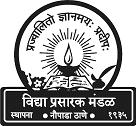 |
|
||||||||||||||
|
|
|||||||||||||||
|
||||||||||||||||||||
|
Climate
change: permission to act fgodlee@bmj.com Last month Margaret Chan, director general of the World Health Organization, called climate change the defining issue for public health for the 21st century (www.who.int/dg/speeches/2007/20071211_maryland/en/index.html). Why are her words important? Because they place climate change squarely in the health arena. They give doctors not just permission but a professional duty to work to tackle climate change. So, what should doctors do? A J McMichael and colleagues explore the risks to health and social equity posed by climate change and environmental degradation (doi: 10.1136/bmj.39392.473727.AD). Rising temperatures and extreme weather will bring shortages of food, water, and fuel and loss of homes and livelihoods. Promoting strategies that reduce the vulnerability of the world’s poorest communities will be important, but these authors say that the greater challenge for health professionals lies in helping to stop the process of climate change. As well as raising awareness of the health risks of climate change, doctors have a key role in raising awareness of the health benefits of tackling it. Ian Roberts explains that policies that aim to cut carbon emissions—by encouraging walking and cycling and consumption of less animal produce—will also reduce morbidity and mortality from obesity, heart disease, and road traffic crashes (doi: 10.1136/bmj.39468.596262.80). Adding in these health benefits would greatly strengthen the economic case for action against climate change that was set out in the Stern report, published last year. The government should commission an extension of the Stern report that takes these benefits into account. The health benefits of low carbon living could also give doctors who are uncomfortable with a global utilitarian approach to public health ("do this because it will help others") a reason to take up the fight against climate change on behalf of individual patients. Other, similar Trojan horses are on the move. International concern about air pollution in Beijing in the run-up to the Olympics later this year is forcing the Chinese government to respond in ways that should also reduce greenhouse gases. Tessa Richards hopes for more than short term fixes but acknowledges that it will take a struggle of Olympian proportions to counter the environmental impact of Asia’s economic success (doi: 10.1136/bmj.39468.630741.47). And then there is the powerful incentive of financial savings. One trust in the east of England expects to save £400 000 through its staff-led scheme to turn off lights and equipment (http://careers.bmj.com). Anna Coote of the UK’s Sustainable Development Commission says the NHS is in the foothills of sustainability, but there is a growing sense of momentum. The NHS leadership has put hard cash behind its new sustainable development unit, which will monitor and encourage energy efficiency throughout the NHS in England (doi: 10.1136/bmj.39468.467106.C2). Whatever the incentive, the drive to sustainability provides opportunities for leadership at all levels in health care. The risks of inaction and the benefits of action make tackling climate change a part of the doctor’s role, helping individual patients lead healthier lives, providing more environmentally sustainable health care, and working to protect the public’s health now and in the future.
|